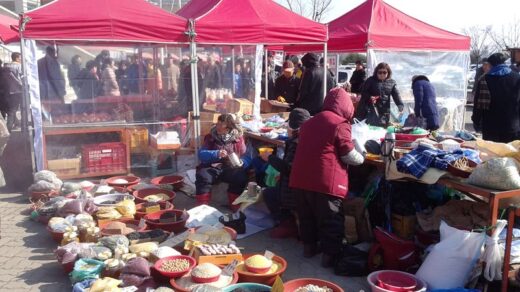
KBC Intern Jared Muloongo interviewed graduate student Juan Aguilar [EXPIRED LINK REMOVED: https://stevenbammel.com/category/archives/kbcprofile/JuanBAguilar] as part of his research in preparing the report “A Map to a Career in Korea: What You Need to Know!”. The following is the original Q&A for the interview.
For links to this and other interviews in the series, visit Supplementary Materials for A Map to a Career in Korea: What You Need to Know!”
Ten Keys to Master that Will Put You in Front When Finding a Job in Korea
1. Does GPA / great academic results matter when applying for a job in Korea?
When I was applying for some multinational companies, one of the requirements at the time of filling the application was to indicate the GPA of at least the latest degree coursed. Companies are looking for the best of international applicants, in order to fill the spot that a Korean person cannot.
2. Korea is big on ‘Woori’ so when hiring an individual does personality matter? What Kind of personality is needed to be able to work in a Korean firm?
The personality of an individual clearly has to have certain qualities in order to work in big companies. These qualities vary from person to person, but the individual has to be aware that he/she will be working there as a team, therefore the relationship within the colleagues has too run smoothly. Companies are looking for multitask or interpersonal individuals who can work alone and in-group. The individual must know how to leave outside the company his/her personal issues and to work based on the company’s working culture. Therefore a good understanding of the Korean business etiquette and the internal company’s working culture is a good start in the application process. The personality of the individual must include a positive view of any circumstance, to be proactive and eager to go one step further for the company’s success. Also keep in mind that your personality might dictate the type of job you are looking for. A marketer is expected to be talkative, innovative and to work in a fast environment. An IT Technician would not need such personality but a calm one with good insight and deep concentration.
3. How does one get noticed or become visible to Hiring managers in Korea?
At least in the multinational companies I have applied for, each one of them has their own application system, from an online application to a downloable package. These application systems let the applicant to write a small introduction, important aspects of their experience, pros and cons of their personality, their future perspectives working at the company in question, and lastly why the applicant think they would be a good asset to the company. Basically these areas let the applicant to “sell him/herself”; therefore a well-written essay will in fact call the attention of the managers in charge. When the company do not have these application methods, the cover letter and the C.V are your tools of trade.
4. How does one utilize the network they gain wisely in order to gain a Job? a. Now that you have a network and you are maintaining it. What do you do?
The greatest network you have, the more opportunities you will have when looking for a job. Recommendations are very important in Korea, if we have contacts inside companies you want to apply and they are willing to write a recommendation letter or a suggestion to get one hired, you will have more chance of success.
At the time of doing networking, what it makes us excel above others is our personality. If this aspect is fulfilled, when the opportunity arises, our networking peers would not hesitate in contacting us. Is that personality and vibe that makes them remember us. First impression is always important.
5. What are some great resources to have and to use in gaining a job in Korea?
a. KBC is a great resource how would you as a hiring manger look for potential candidates to hire?
KBC is a great tool for getting started. The selection of online recruiters and search engines has helped me to find some companies I was not aware of.
b. How can potential candidates use a resource like KBC in your opinion to get noticed?
Certifications are the way to go. The more certifications you have the more you will be noticed. Certifications help you to learn skills that can be related to your major, or not. KBC certifications are an excellent idea to start in the Korean business area because you will let the company knows you have knowledge comparable to a Korean person.
6. What kinds of resumes/ C.V’s get noticed in Korea?
a. Which people should be reading my resumes in order to help me gain an advantage in Korea?
Korean professors can give an insight of how well the resume is written. Also some recruit companies may give you feedback if necessary. Depending on the circumstances, some comapanies will ask you to provide a resume in Korean.
b. What things can one do to their Resume / CV to get noticed?
In my experience, applying to multinational companies, the H.R Department is flustered with all the resumes and applications received in a short lapse of time. A one-page resume I believe could make the difference, stating the best of our experience and knowledge. When the companies do not have an application package, your cover letter should sell yourself.
7. There is no substitute for practice before an interview, what can individuals expect to be asked when applying for a job in Korea? Do you have 5 easy tips for them to remember?
If is the first of the interviews, the H.R personnel will ask you simple questions, such as why are you in Korea, what are your plans, if you know Korean, if you are married, marriage plans, your expectations, how you find out about the company, they may even ask your favourite Korean food or if you drink and how many bottles of soju can you consume.
- Be Polite (knock the door, wait 2 seconds and enter. Bow and salute).
- Try to not to show that you are nervous. Be sure of your answers.
- Do not hesitate in answering personal questions. This is not the western world.
- Try to praise the company. They want to know if you really like the company or not. Explain how you knew about the company, or any good insight about it, so reading about the company’s history and latest news is necessary.
- Try to mention that you really want to stay in Korea. Let them know you have knowledge in something regarding the Korean culture, food, drinking culture, Korean language, etc.
8. What positions should individuals seek to apply to when they are trying to get into the Korean job market? Any recommendations for individuals with very little work experience?
Always speaking regarding big corporations, the job will depend of the exact position they are offering. If the company you want to work does not have any jobs available you can always send them an e-mail to keep your C.V in their database. When a corporation is looking for an individual for a specific task, experience is very important.
Some multinationals are offering entry-level positions. A bachelor is a must and a master is more appealing. At the entry level, the company will train you, but your education, personality and virtues will be of such importance at the time of the interview. Certifications are important as well as your language skills.
9. We know work experience is a factor in getting hired, when individuals have little or no experience what can they include in their Resumes to show that they have the necessary skills to make up for the lack of work experience?
If at school you have made some type of study, market research project, or anything similar, you can add it in your experience. Be aware, you do not have to specify it was a college project. At the time of the interview, if they ask you, then you can describe it in detail.
10. What things should foreigners expect to find when they get a job in Korea? The reason behind the question is to gain an extra advantage by being able to show a unique understanding of the Korean work environment.
Learning the internal company’s culture is expected, as well as the continuous learning of the Korean language. For example you are expected to arrive at work at least half an hour before and to leave at least half an hour after the stipulated time. In some other cases, you will need to stay until your team leader or vice president leaves. The KBC Professional certification will teach you all the things you need to know regarding the Korean business culture.
Juan also got an internship at a major company in Korea. Here is his story about how that came about.
I truly believe in networking, and now more than ever. Thanks to the people I have known for the past two years while living in Korea, I could help myself economically and socially. Networking is of such importance for me because thanks to it I got informed about an internship opportunity at Posco Steel. Big corporations need to fill a quota of new employees every year, usually using the best of the Korean universities to look for their candidates. Luckily I have friends at Korea University, and I applied few days after the announcement was released.
In this case, Posco Steel was looking for international students from certain countries, to work in the Marketing and International Affairs departments. The Korean language was not necessary but knowledge was a plus. The only requirement was to be able to assist to a 2 weeks internship. In order to apply, the company has its own job package, in which the applicant must fill their education, experience, talk about them, including pros, cons, future plans and why the company should hire them. You have to take consideration in the essay-type-questions because those are the ones the HR Dept. will review carefully. The process of choosing a candidate was very fast. In two weeks I knew I had passed the screening process, and the next step was an interview. The interview went smoothly, the interviewers wanted to know more about me, therefore they asked me only personal questions, from why I came to Korea to how many soju bottles can I drink. A week later I received the interview results and the internship was already at the step of my door.
When I got accepted, the company provided me with a document that I needed to fill up with the help of my college advisor and the student affairs division from my university. This is needed by the company and the Korean immigration office to know the internship will not affect my studies and schedule. I had to bring the document to the immigration office, and they notified within a week. With this I was already set. The first thing I had learned when I arrived at my internship was the internal business culture. I had to learn all the names of my colleagues, taking extra care in knowing and understanding the position of each one of them. I had to be careful in the way I talked and express myself, it was the first time working in a Korean corporate environment so I had to study my way in. My teammates were very easy going all of them speak English fluently, although they spoke Korean with themselves, that’s why knowledge in Korean is very important. In my case my team was very small (only 5 people) and all of them lived abroad, therefore we did not have any problems culturally.
I understood you have to be very careful in what you do and what you say, mostly in front of the team leader or the highest rank person. Also they expected me to arrive at work half an hour before time and to leave half an hour after. When the Vice President visited our office we had to stand up, but when he was coming back and forward it was no need. At the time of lunch, the vice president asked me personal questions that may be hard to answer if you are not accustomed to it, I just went with the flow. Working for two weeks in one of the largest companies in Korea was a great experience, at the end of the internship I bought a cake in gratitude to my team for being so nice and tolerant with me. We exchanged contact information and I left. I felt like I had worked there for several years. A great experience indeed.






